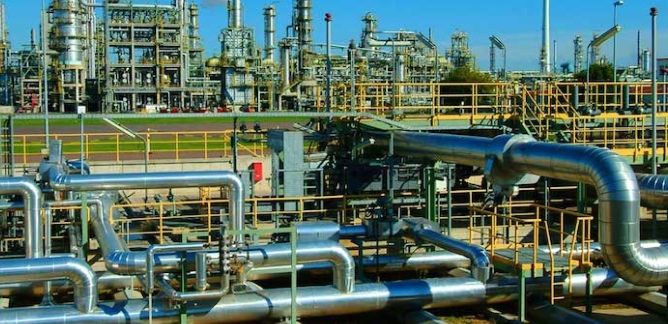News Watch
Nigeria Refineries’ Revenue Drought: N127 Billion Spent on Salaries, Benefits Without Producing a Single Barrel

The Nigerian government’s pledges to revamp the nation’s refineries have yet to yield tangible results, leaving the facilities in a state of disarray and struggling to achieve optimal productivity.
Security Nigeria investigation reveals that despite their inability to refine crude oil or generate revenue, these companies have spent billions on employee compensation.
An analysis of the Nigeria National Petroleum Company’s audited financial statements shows that the Kaduna, Port Harcourt, and Warri refinery companies collectively expended N127.326 billion on salaries, wages, and employee benefits between 2020 and 2021.
The amount was allocated for salaries and wages in September 2020, despite the fact that all four of Nigeria’s refineries had been shut down, sparking questions about how such a significant wage bill was incurred when the refineries were non-operational.
Furthermore, in June 2022, the NNPC Chief Executive Officer confirmed that none of Nigeria’s refineries were functioning, raising additional concerns about the justification for such high personnel costs.
An examination of financial reports reveals that the Port Harcourt Refinery Company incurred significant expenses on salaries, wages, and employee benefits, totalling N22.547 billion in 2020 and N32.023 billion in 2021.
Similarly, the Warri Refinery Company spent N12 billion in 2020 and N14 billion in 2021 on personnel costs.
The Kaduna Refinery Company also reported substantial expenses, with N26 billion in 2020 and N20 billion in 2021.
Furthermore, the Kaduna Refinery Company provided loans to its employees totaling N2.2 billion between 2020 and 2021, with N1.180 billion recorded in 2020 and N991 million in 2021.
Despite repeated promises from the Nigerian government to revitalise the country’s refineries, these plans have yet to come to fruition.
The latest example is the delayed revival of the Port Harcourt refinery, which has been postponed for a record sixth time, further extending the wait for its functionality to be restored.
-

 News Watch1 month ago
News Watch1 month agoRemi Tinubu Initiates N1.8bn Grant to Boost Women’s Businesses, Benefiting 37,000 Nationwide
-

 News Watch1 month ago
News Watch1 month agoNYSC Announces August 19 Opening of CBO Portal for Cybercafe Operators
-

 Police News1 month ago
Police News1 month agoNigeria Police Force: A List of 36 State Commissioners
-

 News Watch1 month ago
News Watch1 month agoAviation Sector Braces for Strike as Workers Reject 50% Revenue Cut
-

 News Watch1 month ago
News Watch1 month agoTensions As Two Young Women Killed, Two Injured in Car Crash After Birthday Party [Pics]
-

 Fraud Watch1 month ago
Fraud Watch1 month agoEFCC Laments As P-Square’s Peter Refuse Reporting Twin Brother Paul Over Alleged Fraud In Family
-

 News Watch1 month ago
News Watch1 month agoAbia Auto Crash Claims 5 Lives, 2 Babies Among Victims
-
![Tinubu's Green Initiative: Nigeria to Adopt Compressed Natural Gas for Commercial Vehicles [Photos]](https://securityngr.com/wp-content/uploads/2024/08/Screenshot_20240812-234612-400x240.avif)
![Tinubu's Green Initiative: Nigeria to Adopt Compressed Natural Gas for Commercial Vehicles [Photos]](https://securityngr.com/wp-content/uploads/2024/08/Screenshot_20240812-234612-80x80.avif) News Watch1 month ago
News Watch1 month agoTinubu’s Green Initiative: Nigeria to Adopt Compressed Natural Gas for Commercial Vehicles [Photos]
